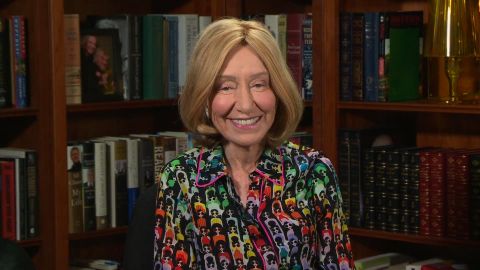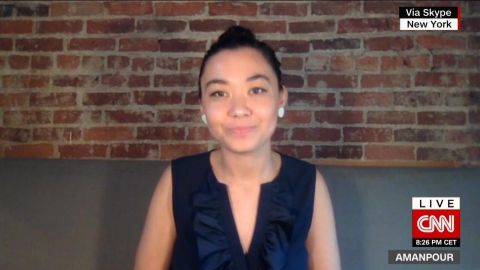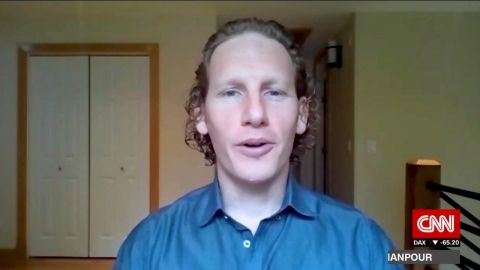Read Transcript EXPAND
CHRISTIANE AMANPOUR: Of course, Joe Biden is a 77-year-old gentleman, he’s white male, he’s, you know, what many people might think might not be the man for the moment, and yet, he seems to have landed in what is really his sweet spot at a moment of incredible trauma in the U.S. and around the world. How does he match the moment in your view compared to, you know, all the things you’ve studied and written about?
DORIS KEARNS GOODWIN, PRESIDENTIAL HISTORIAN: Well, I think there’s two ways that he matches the moment, and I think that’s what the convention succeeded in doing, not only his speech, but the whole way they ran it, redefining him for a lot of people who haven’t really thought about what he is. I mean, number one, there is a certain set of qualities that he has that leaders in crisis have to have. They’re magnified in times of crisis. They showed empathy, they showed resilience. In fact, he made a direct connection between the virus and the paralysis that polio had given to FDR and all the different problems and adversities hugely that he’s been through. So, he comes back from that and gives you an optimism that you can bring the country back at the same time. Humility has been shown besides the resilience and ambition that’s bigger not for self but for something, for our greater good. And trust in my word, that was over and over again the way people could promise. So, that’s one thing, maybe these qualities that allowed him to help fix a broken family might help him fix a broken country. But also, because he’s 77, because he’s been in power for such a long time, he was there when the Congress was able to make compromises to do things and get things done on a bipartisan basis. And that may seem like old nostalgia, but if these outside protest groups are going to be able to do what the civil rights movement did in the ’60s, you need the outside power pushing always. Every change comes from the ground up, but you need levels of power inside that can translate those desires into policy, and that’s what we saw so brilliantly with the relationship between Martin Luther King and LBJ, that outside pressure, especially at Selma, which we saw John Lewis in these last months and celebrated. But inside, was that southerner in the White House who knew the Congress, knew how to pressure it, knew how to get it done. And that’s the promise, maybe, that a 77-year-old who lived in a very different time when Congress was a different animal before it became this polarized thing might be able to use his skills to get that economic Recovery Act through, to run that Recovery Act. And I think that’s what we saw last night, was the fact that maybe the very thing that has seemed his problem, his age and having been there for a very long time, at this point in history, the experience and the commitment and the ability to get other people to get together, that unifying spirit, that optimism may be the right thing to connect to all that energy that’s on the outside right now.
About This Episode EXPAND
Presidential historian Doris Kearns Goodwin puts this week’s Democratic National Convention into context tonight. Assault survivor Chanel Miller discusses her new art exhibition at San Francisco’s Asian Art Museum. CNN correspondent Phil Black gives a special report on the suspected poisoning of Kremlin critic Alexey Navalny. Wharton professor Jonah Berger explains how to change anyone’s mind.
LEARN MORE


